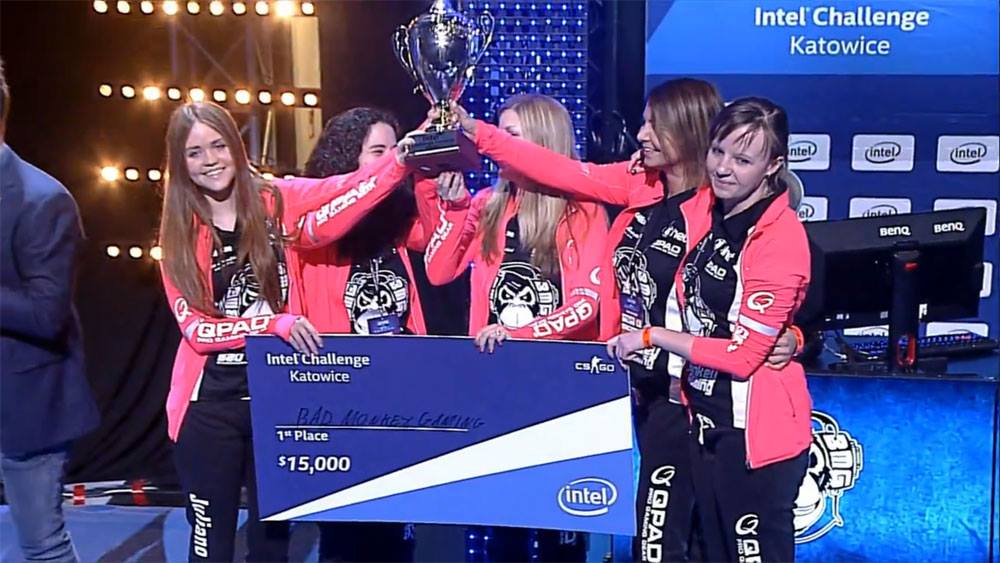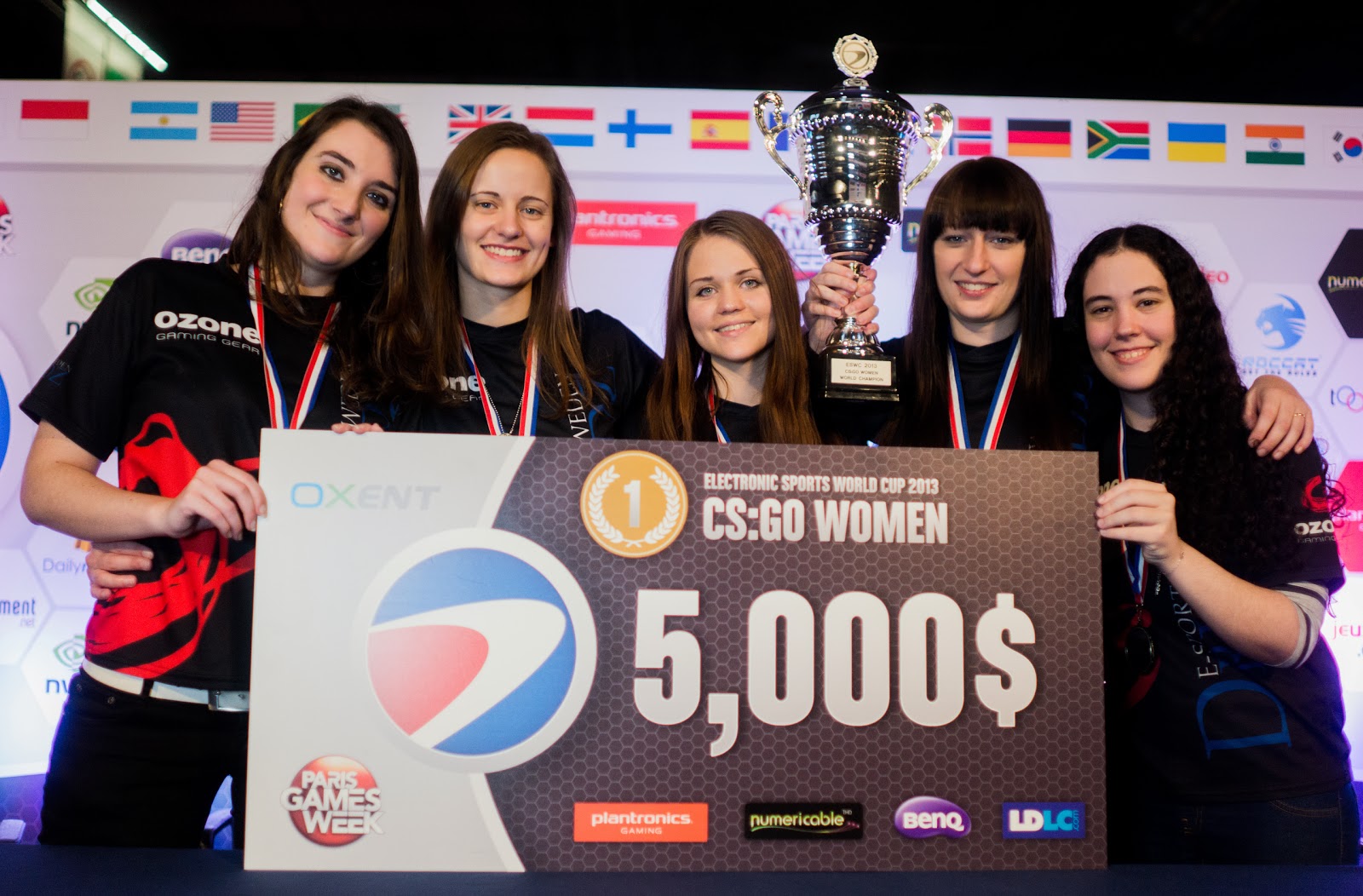The life source of eSports is the community. Key elements that make these communities so dynamic are their lively competition and inclusive participation, which promote and cultivate a vigorous, healthy ecology. With such holistic communities, most organizers face a number of challenges when trying to establish a space for positive camaraderie. Of these potential challenges, the key topic discussion at this PAX East panel was creating safe places for women in eSports.
Called Competition for All: Building Inclusive E-Sport Communities, the panel was lead by T.L.Taylor — MIT professor and Director of Research for Any Key. We also heard from women veterans of eSports discussing initiatives to grow female community participation.
Communities help nurture comradeship and support diversity in eSports, but the question that seems to always linger is: why are there not more women in eSports communities and competition?
How to make change
Developing campaigns to evolve environments so women want to participate can starts with tiny solutions that will later grow to induce change. Anna Prosser Robinson, Programming Manager at Twitch and Co-Founder of Misscliks, says that we as community leaders must take ownership and conduct small individual actions to see change. Sometimes creating the atmosphere for women means simply reaching out to key figures and brands for support, resources, and advice.
The importance of data in understanding change
Former manager for Frag Dolls and Director of Initiatives for Any Key, Morgan Romine, discussed initiatives to create diversity in eSports. Understanding the effectiveness of these initiatives requires more data from the community. Audiences can be very hard to measure accurately, and sometimes doing so can be as simple as counting how many people attend an event or creating surveys.
Since most industry data is kept secret, community leaders need to think of ways to analyze fan involvement data (i.e. demographics). Because eSports is also extremely new, open source research and data analysis of the eSports industry is scarce. And on top of that, most eSports brands don’t have any incentive to invest in analyzing their data yet.
Creating safe spaces
Interaction Designer at YouTube and former competitive Smash Bros Melee player Lilian “MilkTea” Chen demonstrated a great initiative with the program Smash Sisters. In a blog post, MilkTea opened a conversation about whether women-only tournaments would help or hurt developing and established eSport communities. The simple answer is that nobody knows.
So with that, MilkTea created Smash Sisters to look into what would happen if a safe space for women Smash players was created. Smash Sisters is a series of women-only matches for Super Smash Bros. The turnout was remarkable and the feedback seemed to articulate that safe spaces, while not meant to be permanent, offered a stepping stone for veteran and new women to immerse themselves in eSports.
Safe spaces online
On the matter of safe eSports spaces online, ESL Project Manager Kelly Kline pointed out that oftentimes due to anonymity, viewers find creative and repulsive ways to insult women in Twitch chat. Her team will often ban those who make such comments, effectively curtailing the behavior. The hope is to evoke a healthy and diverse online presence which will transfer to offline events.
A great incentive I believe could work well is establishing a ranking system over the Twitch platform to reward/punish certain chat behavior. Twitch could create an online currency, let’s say Twitch Coins, which can be rewarded by moderators for creative and positive interactions. This could eventually be traded in for cool icons, access to Twitch events, dollars at TwitchCon, or access to favorite Twitch Streamers.
As a community leader, event planner, and marketing representative for many communities in NYC, I cannot express enough how important it is to have open discussions on how to make sure eSports communities are holistic, healthy, and always expanding. eSports are nothing without their communities, and so community leaders and brands are obligated to rethink, reach out, and cultivate dynamic diverse eSports atmospheres offline and online.








Published: Apr 22, 2016 12:09 pm